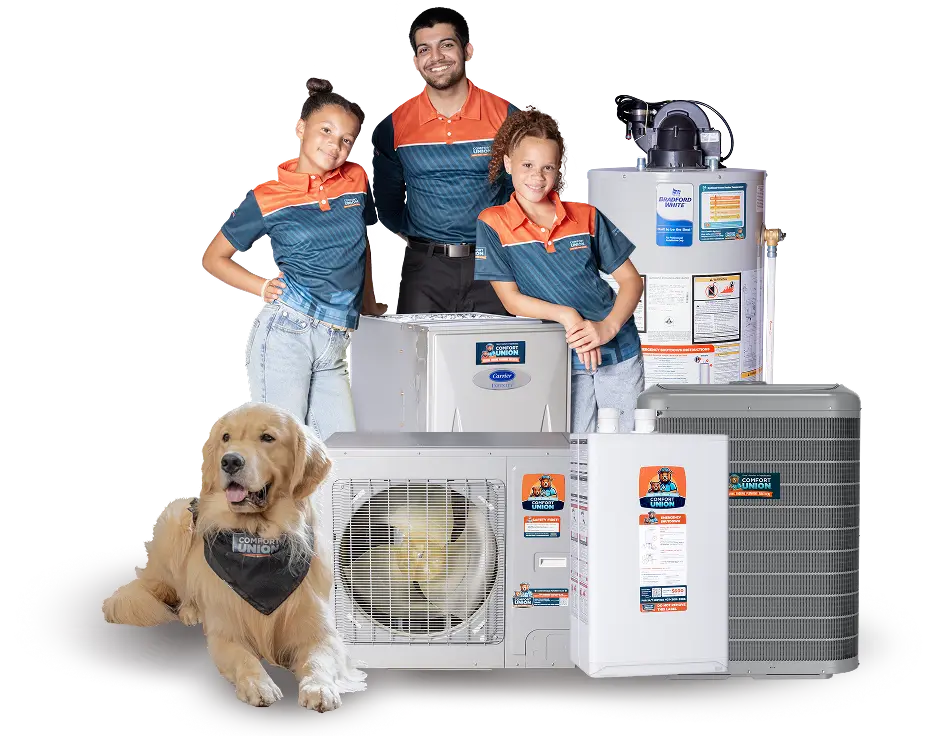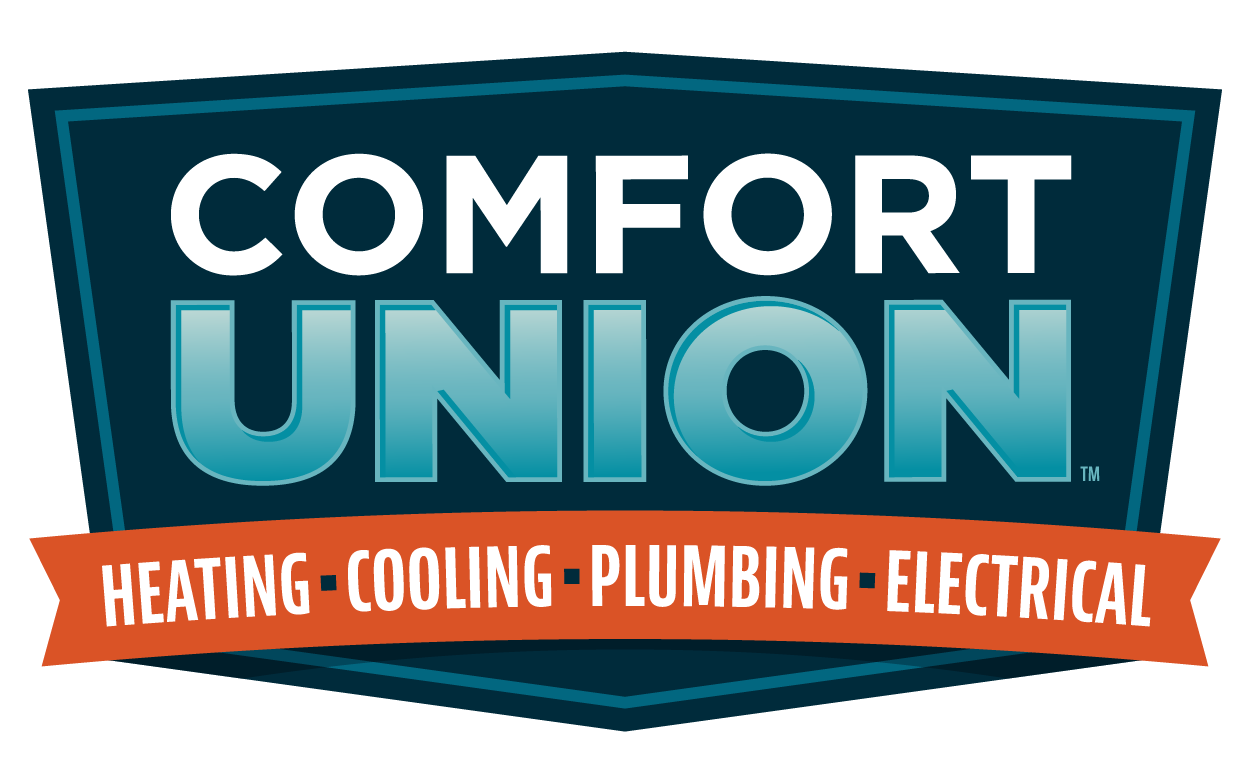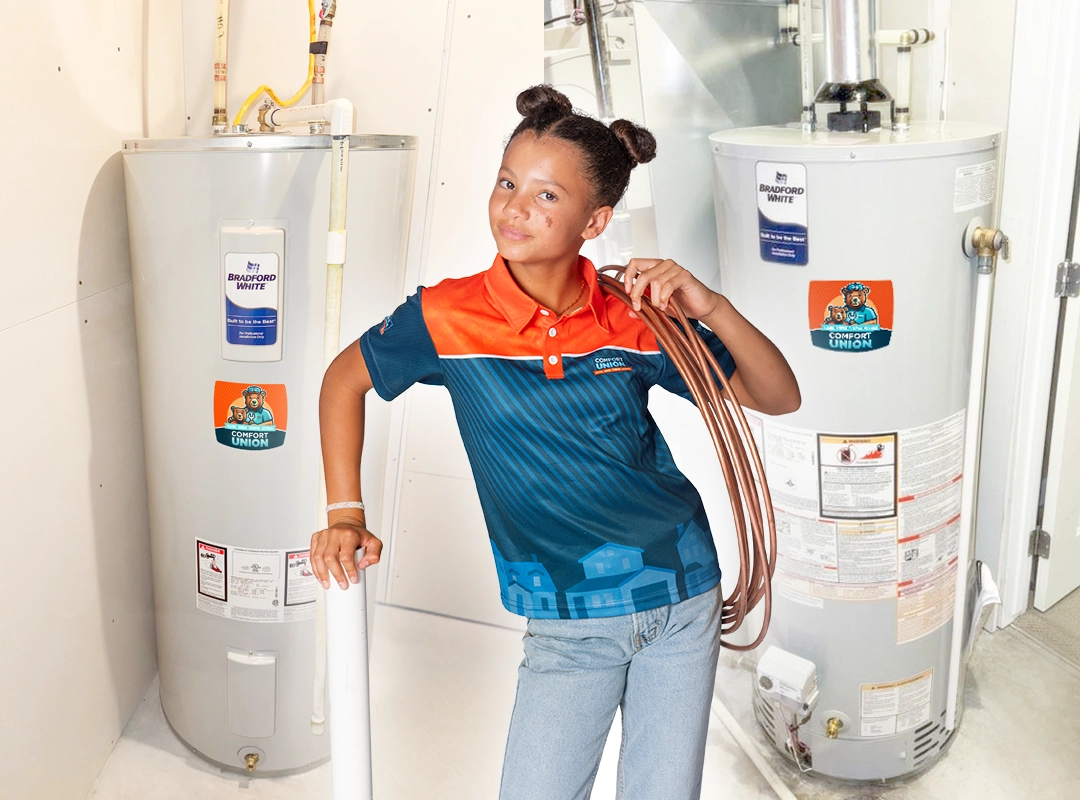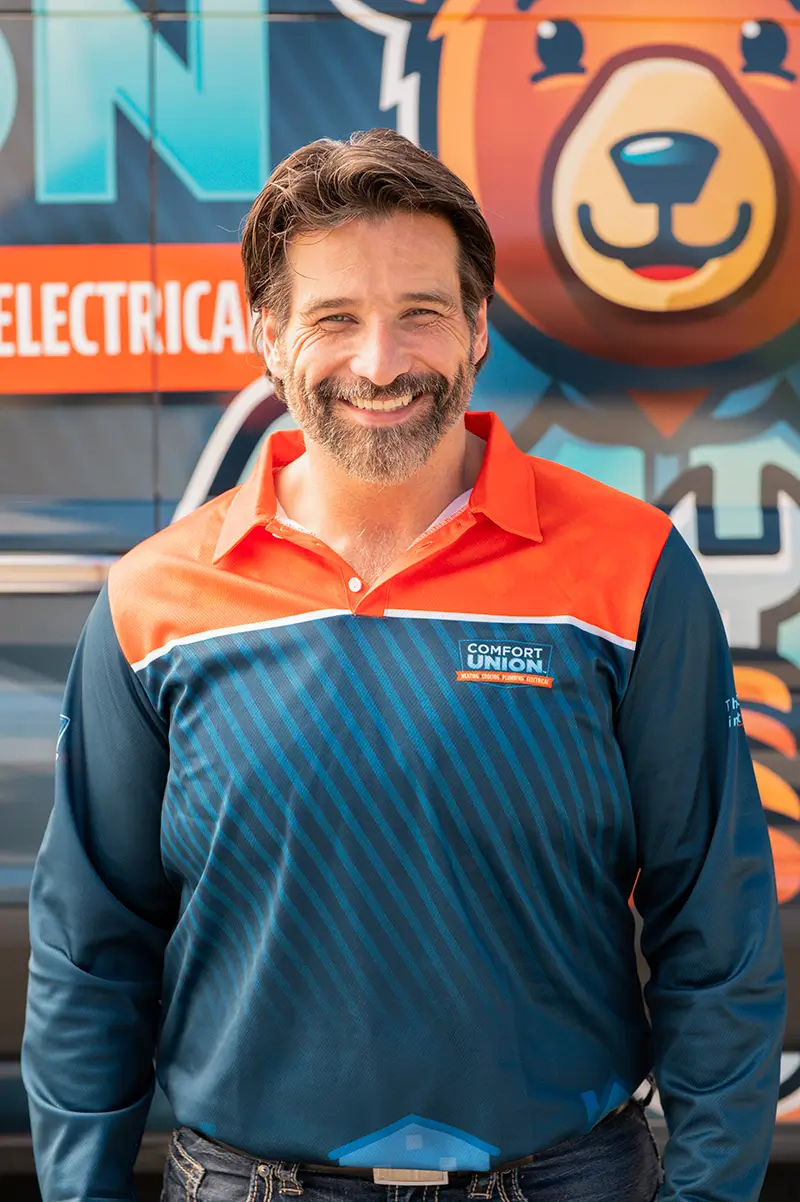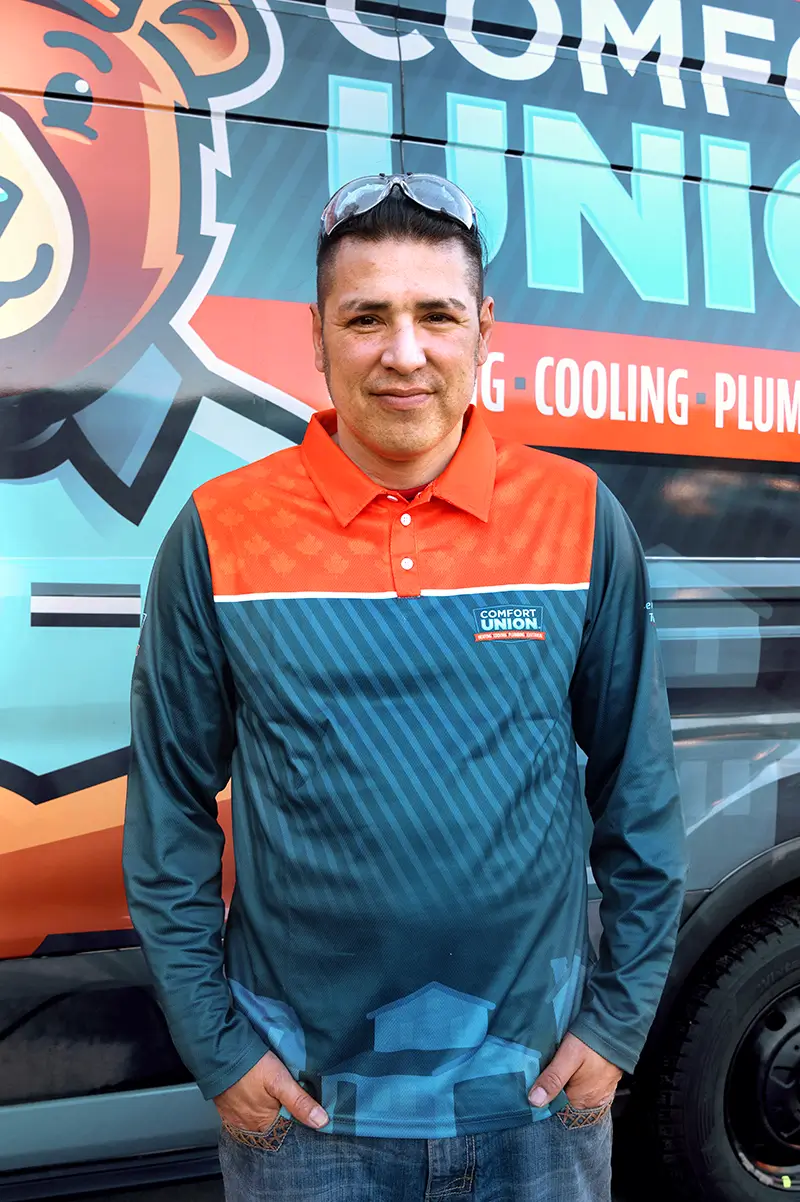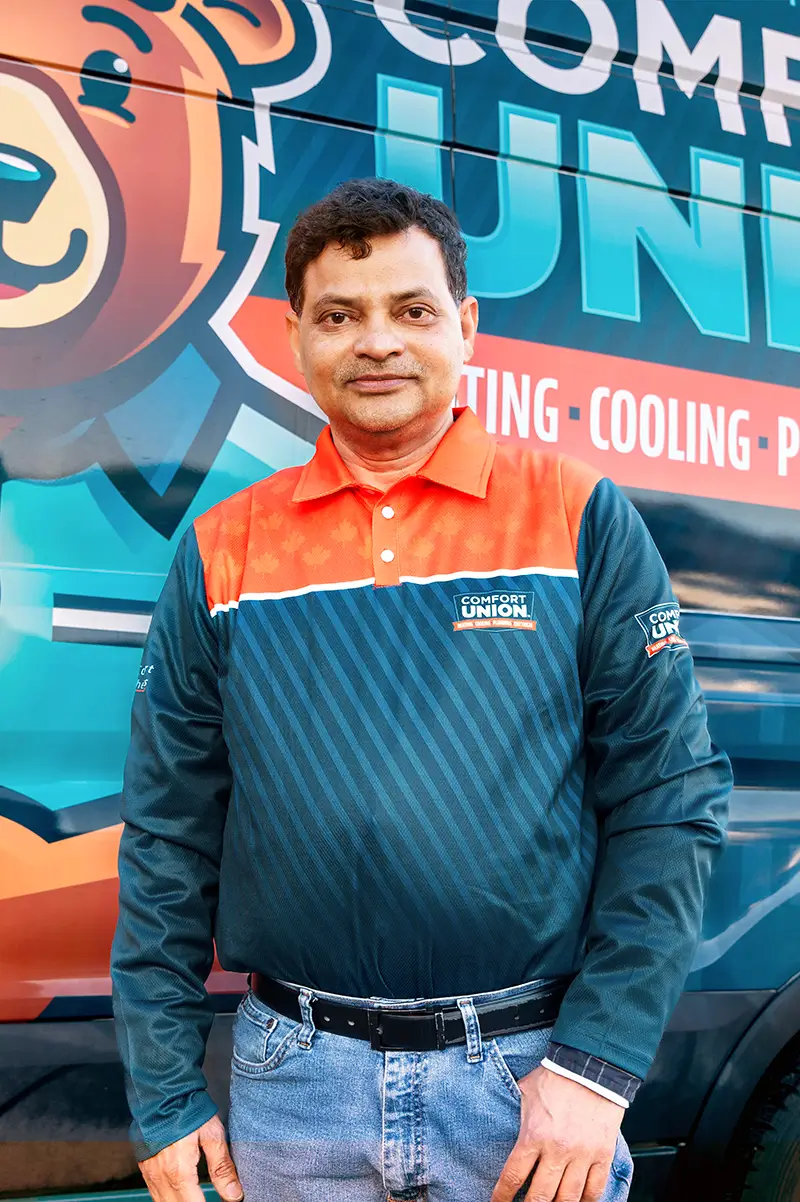If you’ve ever had your hot water run cold mid-shower during a Calgary winter, you know just how essential a dependable water heater is. But when it’s time to replace or upgrade, one big question always comes up: should you go with electric or gas?
Each has its strengths and the right choice depends on your home, your family’s needs, and the unique realities of Calgary’s long, freezing winters. In this guide, we’ll walk you through how both systems work, their pros and cons, and how to decide which fits your home best.
Need a New Hot Water Tank?
With Flexible Financing Options
How Do Gas and Electric Water Heaters Work?
Both systems heat water efficiently, but they do it in very different ways.
- Gas water heaters use a burner at the bottom of the tank to heat water. As the gas burns, the heat rises through a metal flue, warming the water around it. These models are common across Calgary homes because natural gas is widely available and relatively cheap in Alberta. They’re known for fast recovery times and steady hot water, even in deep winter.
- Electric water heaters, on the other hand, use electric heating elements inside the tank to warm the water directly. There’s no combustion, no venting, and they’re simple to install. While they may heat a bit slower, electric models are safer indoors and often last longer because there are fewer moving parts or combustion components to wear out.
Energy Efficiency and Performance
When it comes to heating performance, gas water heaters take the lead in most Calgary households. They heat water faster and recover quickly after heavy use — a big plus for families running multiple showers or appliances in winter. However, they lose some efficiency through venting heat outdoors.
Electric water heaters are technically more energy-efficient (since almost all electricity converts directly into heat), but Alberta’s electricity costs are higher than natural gas. In short, gas is cheaper to run, even if electric models are slightly more efficient on paper.
Installation and Upfront Costs
Electric systems are simpler and cheaper to install since they don’t require venting or gas line connections. The typical electric unit runs between $1,500 and $2,500 installed, while gas systems range from $2,000 to $3,500 due to added venting, labor, and safety components.
That said, many Calgary homes already have natural gas lines, which makes upgrading to another gas water heater the most straightforward option.
Operating Costs in Alberta’s Energy Market
Natural gas prices in Alberta are among the lowest in Canada, which gives gas water heaters a long-term cost advantage. Even though electric units use energy more efficiently, electricity rates in Calgary often make them more expensive to run month to month.
However, if you’re considering eco-friendly or hybrid electric water heaters, these newer models combine heat pump technology with electric heating, cutting energy use dramatically. They’re a growing trend in Calgary homes focused on sustainability and long-term savings.
Lifespan and Maintenance Needs
In general, electric water heaters last longer, at about 15 to 20 years, compared to 8 to 12 years for gas models. The reason? Electric systems face less heat stress and have fewer components that wear down.
Calgary’s hard water is a wildcard, though. Without regular flushing or a water softener installation, minerals build up inside the tank, shortening its life and lowering efficiency. A simple annual flush can extend your tank’s lifespan significantly, regardless of type.
3 Key Safety and Venting Requirements
Safety plays a major role in deciding between gas and electric water heaters, especially in tightly sealed Calgary homes.
1. Gas Water Heaters Require Proper Venting
Gas units produce combustion exhaust, including carbon monoxide, so they must be vented safely outdoors to prevent dangerous buildup. In tightly sealed modern Calgary homes, poor airflow can increase the risk of backdrafting, which pulls exhaust back into the living space.
2. Venting Challenges in Energy Efficient Homes
Newer homes are built to be airtight for better efficiency, but this can restrict natural draft ventilation. Without proper setup, a gas heater may struggle to vent correctly, creating safety hazards and requiring mechanical ventilation or upgraded venting systems.
3. Electric Water Heaters Are Inherently Safer
Electric units do not burn fuel or generate exhaust, making them simpler to install in condos, basements, and small utility areas. They also remove the risk of carbon monoxide leaks near the tank, although every Calgary home should still have detectors installed for overall safety.
Pros and Cons of Each Type
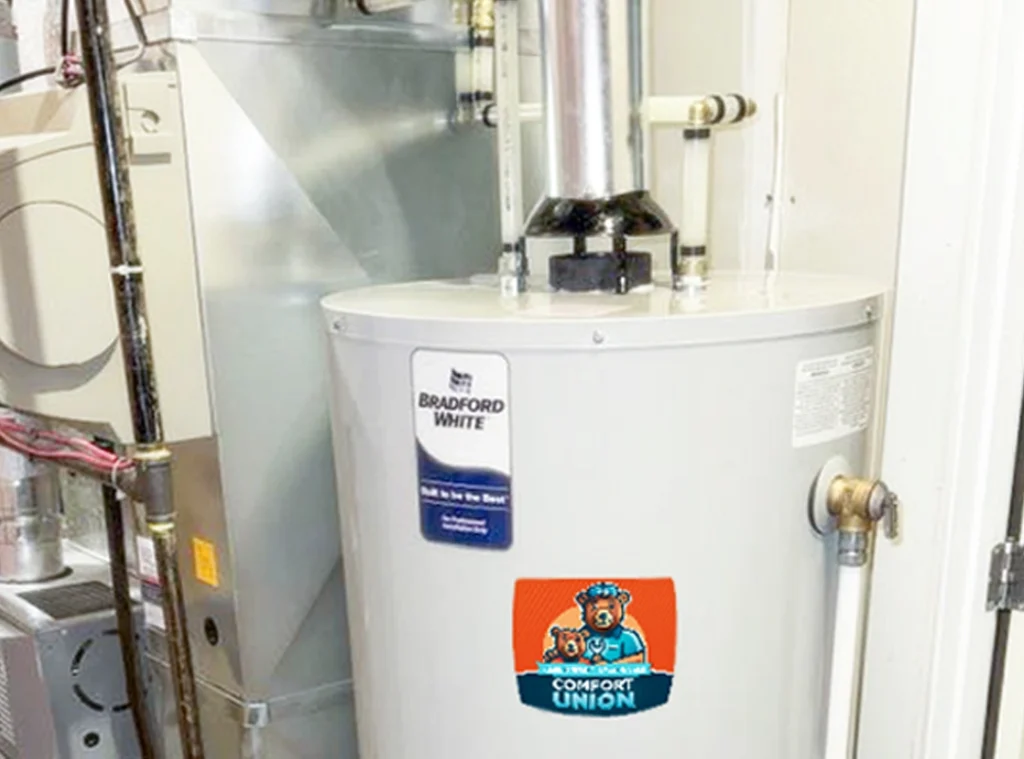
Both of these water heater system types have a place in Calgary homes, depending on priorities.
Gas Water Heaters:
They heat fast, work during power outages, and cost less to run long-term. But they require venting, annual safety inspections, and more complex installation.
Electric Water Heaters:
They’re simple, quiet, and safe to install almost anywhere. While they cost more to operate in Alberta, their longevity and ease of maintenance make them a reliable choice for smaller homes or condos.
What’s Best for Calgary Homes?
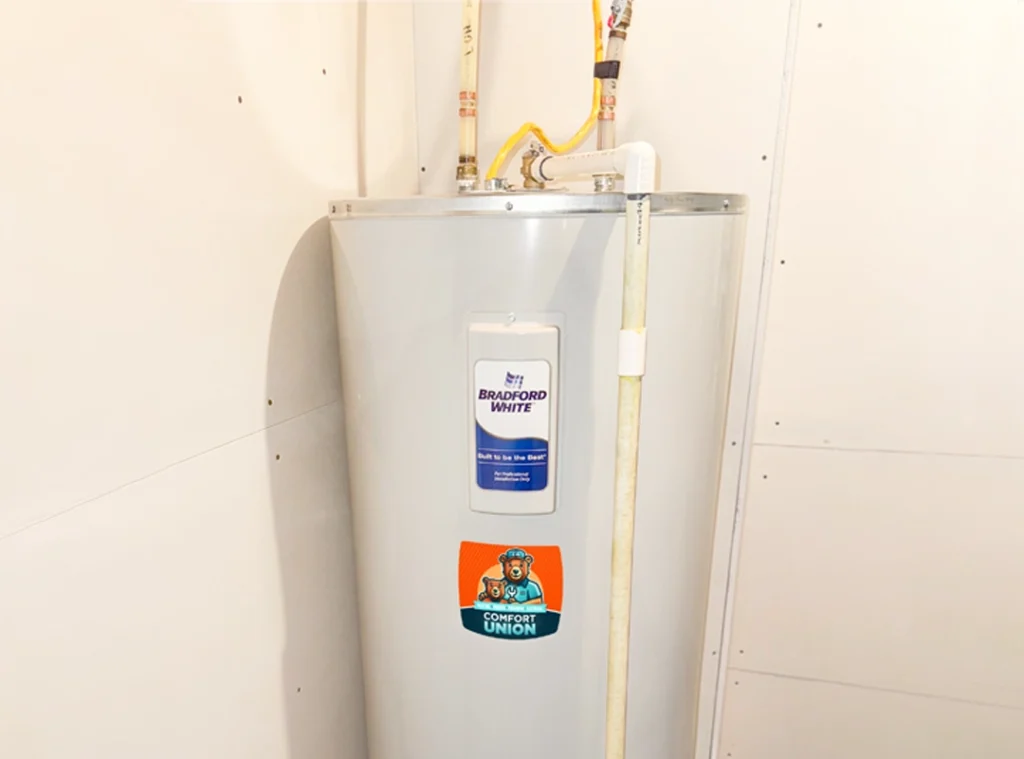
In Calgary, the best choice depends on your lifestyle and home setup.
If you have a larger household, already use natural gas, or value quick recovery times during long showers, a gas water heater remains the best fit. It handles Calgary’s cold groundwater and high hot-water demand with ease.
If you’re in a smaller home, condo, or looking for a low-maintenance solution, an electric model (or even better, a hybrid electric unit) can save space, reduce emissions, and deliver dependable performance.
For homeowners wanting to cut their utility bills and never run out of hot water, tankless water heaters are another excellent, energy-efficient option gaining traction across Calgary.
How Calgary’s Climate Impacts Your Choice
Calgary’s cold winters mean incoming water can be close to freezing, making recovery time and heating power critical. Gas heaters excel in this scenario because they heat quickly, maintaining steady temperatures for longer showers and heavy use.
Electric heaters, while efficient, may take longer to recover in deep winter, especially for multi-person households. Still, with proper insulation and placement in warmer indoor spaces, they perform reliably all year long.
Calgary’s dry air also accelerates mineral buildup inside tanks, so regular flushing is essential to keep either system performing efficiently.
Average Cost Comparison in Calgary (2026)
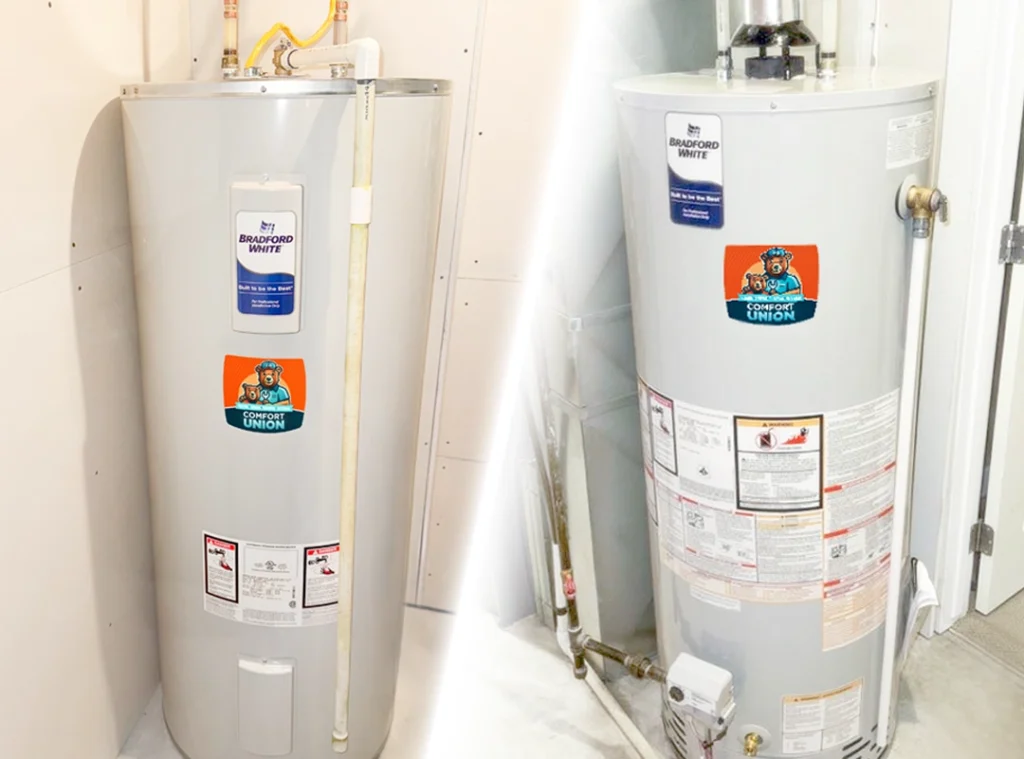
On average, you can expect to pay:
- Gas water heater: $2,000–$3,500 installed
- Electric water heater: $1,500–$2,500 installed
Annual operating costs vary based on local utility rates, but gas typically wins out in Alberta due to lower fuel prices. Routine maintenance, such as flushing and anode rod checks, usually costs $150–$250 per year, preventing costly breakdowns later.
For professional setup and lasting performance, see Comfort Union’s hot water tank installation services in Calgary.
When to Replace Your Current Water Heater
If your water heater is over 10 years old, producing less hot water, or showing signs like rust, leaks, or strange noises, it’s likely near the end of its lifespan. Calgary’s hard water accelerates wear, so don’t wait for a failure.
A proactive replacement ensures efficiency, safety, and steady hot water — especially before Calgary’s winter rush hits. Comfort Union’s licensed team can help you assess whether repair or replacement makes the most sense for your budget and household.
FAQs Calgary Homeowners Ask
Is a gas or electric water heater cheaper to run in Alberta?
Gas is generally cheaper due to low natural gas prices in Alberta.
How long does each type last in Calgary’s climate?
Electric units last around 15–20 years, while gas heaters typically last 8–12.
Can I switch from gas to electric?
Yes, but it requires electrical and plumbing modifications. A licensed technician should assess feasibility and cost.
What’s the most energy-efficient option available in 2026?
Hybrid electric and tankless water heaters offer top efficiency and savings over time.
How often should I flush my water heater?
At least once per year because Calgary’s hard water makes this essential maintenance.
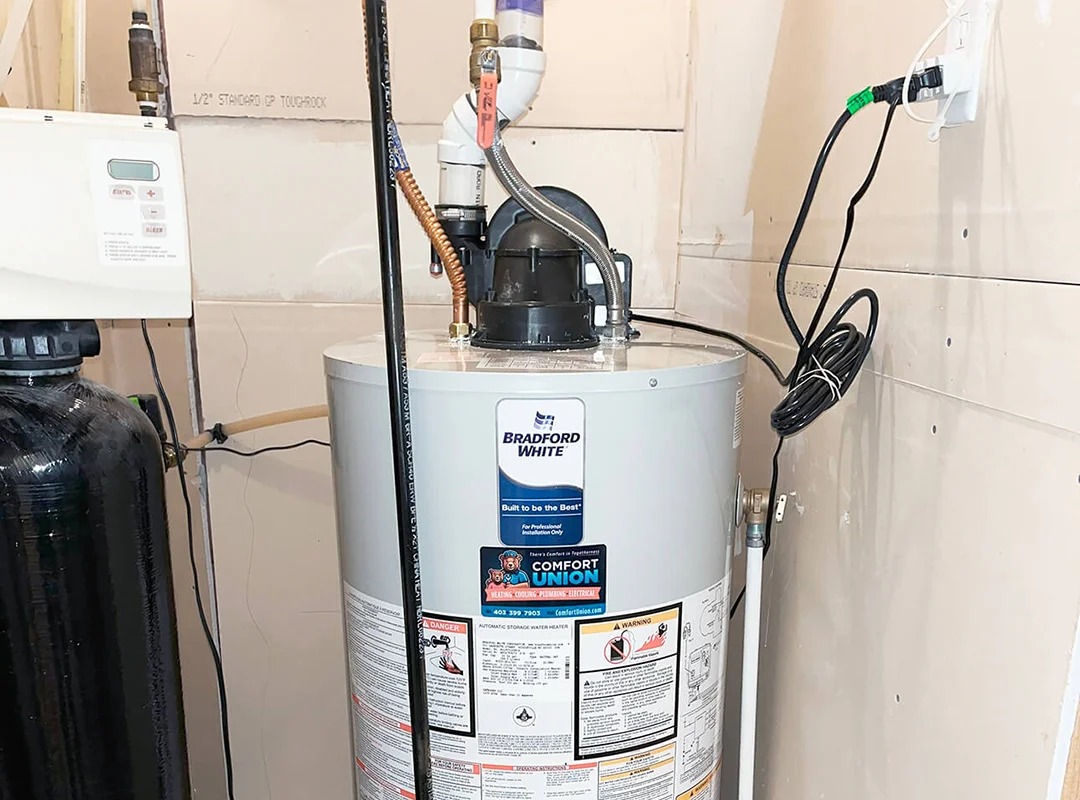
Professional hot water tank installs in Calgary with energy-efficient models, expert setup, and clean workmanship, backed by Comfort Union’s trusted team.
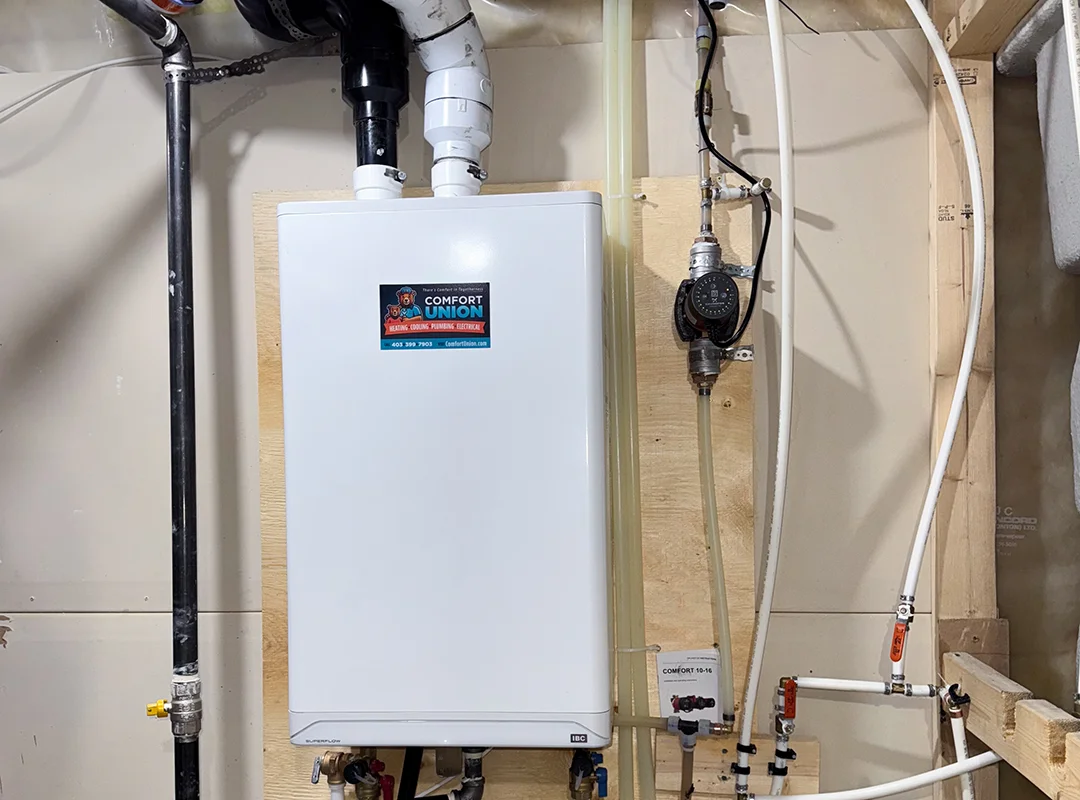
Upgrade to a tankless water heater in Calgary with 24/7 installation service, transparent pricing, and expert HVAC professionals you can count on.
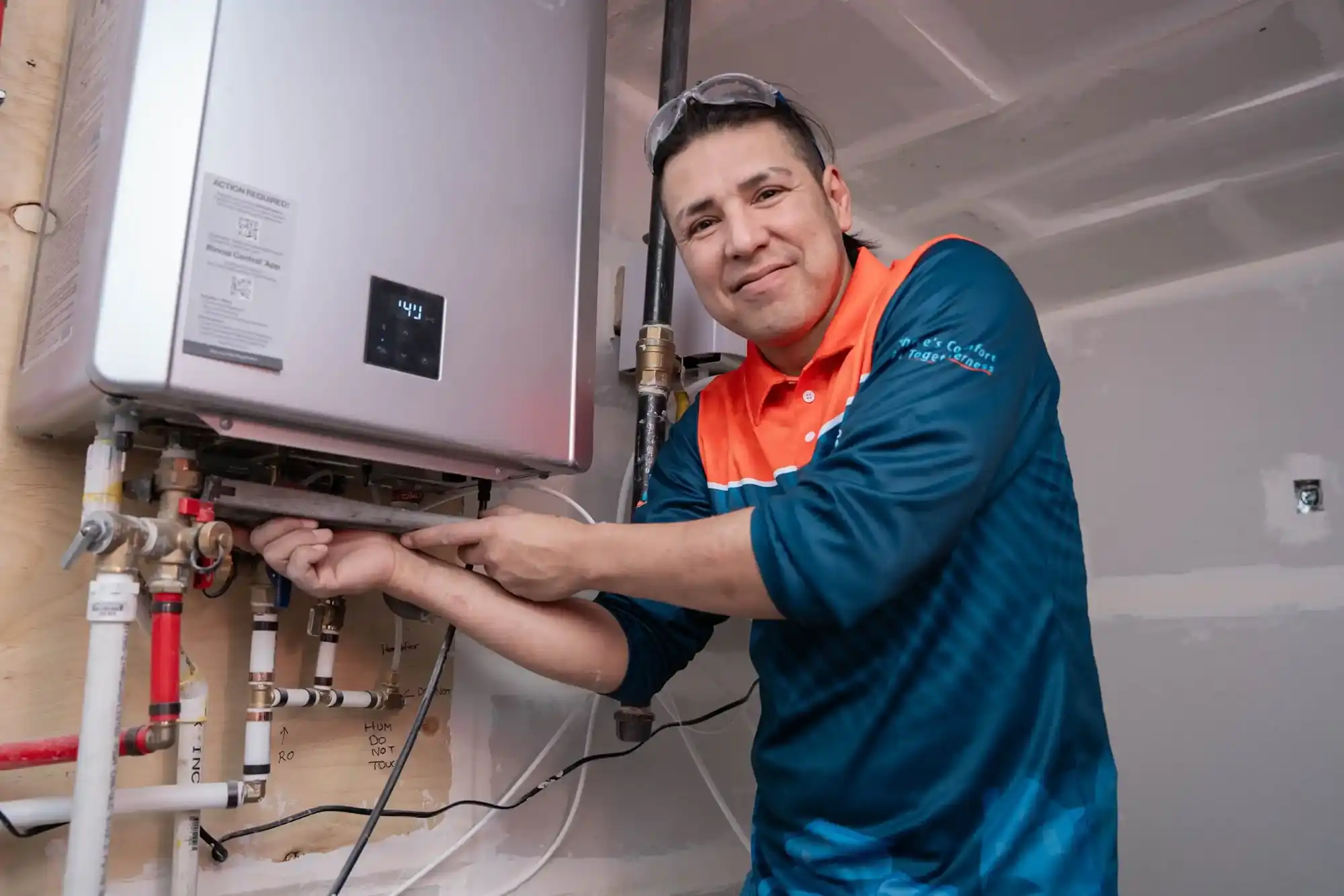
Quick and reliable tankless water heater repairs in Calgary. Get fast diagnostics, honest pricing, and long-term performance from local specialists.
